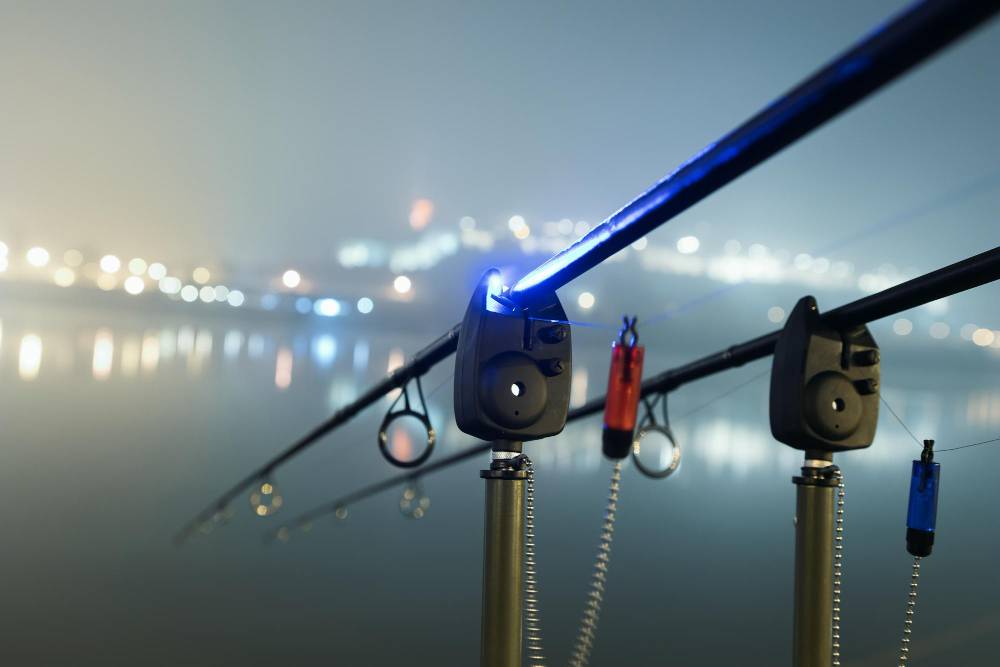
Electrofishing is often associated with fish surveys and population assessments, creating the foundation for lake and pond maintenance practices. While its primary function is species identification and population analysis, electrofishing offers many versatile applications in aquatic ecosystem management. At Aquatic Restoration, we leverage this innovative approach for various purposes as controlling invasive species, enhancing habitat quality, monitoring diseases, and managing fish populations. Let’s look at the different roles of electrofishing in lake management to help you make informed decisions.
As mentioned, electrofishing is famous for its role in species identification and population assessment. Professional researchers and lake managers can collect data on the fish in a body of water by administering controlled electric currents that temporarily stun fish. This technique provides valuable insights into the diversity and abundance of fish species, ensuring informed decisions about retention pond maintenance and conservation efforts.
Another application of electrofishing is to control invasive species effectively. Invasive species can wreak havoc on native ecosystems by out-competing indigenous species, disrupting food webs, and altering habitat structure. Electrofishing offers a targeted approach to combat invasive species by selectively removing them from the ecosystem. Our expert lake and pond maintenance team can mitigate their effects and restore balance to the ecosystem by focusing electrical currents on specific areas where invasive species are prevalent. These target areas include near boat ramps or shallow water habitats.
As mentioned, electrofishing is also an excellent tool for habitat enhancement in lakes and ponds. By strategically targeting areas with low habitat complexity or degraded habitats, electrofishing operations can create favorable conditions for fish populations to thrive. Removing debris, clearing vegetation, and enhancing underwater structures can improve habitat quality and increase habitat availability for various fish species. In addition, assessing habitat suitability during electrofishing surveys allows managers to identify areas needing restoration.
Electrofishing plays a critical role in disease monitoring and research. Fish populations are susceptible to various diseases and pathogens, which can spread rapidly and devastate aquatic ecosystems. Electrofishing surveys provide an opportunity to assess the health of fish populations and detect signs of disease outbreaks. Researchers can identify pathogens, monitor disease prevalence, and implement proper management strategies to prevent further spread.

Beyond assessing populations, electrofishing is crucial in population control and management. Where fish populations are overabundant or out of balance with their environment, electrofishing can selectively reduce population densities. This targeted approach minimizes the effects on non-target species while effectively managing populations of concern. Whether controlling overpopulated species or restoring balance to a disturbed ecosystem, electrofishing offers a precise and efficient means of population management.
Electrofishing is a versatile lake management tool beyond its traditional role in species identification and population assessment. This innovative approach is crucial in promoting the health and sustainability of aquatic ecosystems. Contact us at Aquatic Restoration to harness the power of electricity to address various management challenges and implement targeted strategies to achieve your conservation objectives. We provide comprehensive services, including retention pond maintenance, at competitive rates.
Lake and pond dredging is an essential maintenance task that helps to improve water quality, restore depth and capacity,…
There’s a lot that goes into managing a lake. Beyond the aesthetics, it’s important to maintain ecological balance and…
Excessive algal growth is a serious threat to lakes and ponds. Left unchecked, algal blooms can deplete oxygen levels and…
Dredging is the removal of accumulated sediment and debris from the bottom of a lake or pond. This process is…
Pond and lake owners deal with a wide range of issues, including algae blooms, aquatic weed infestations, poor water clarity,…